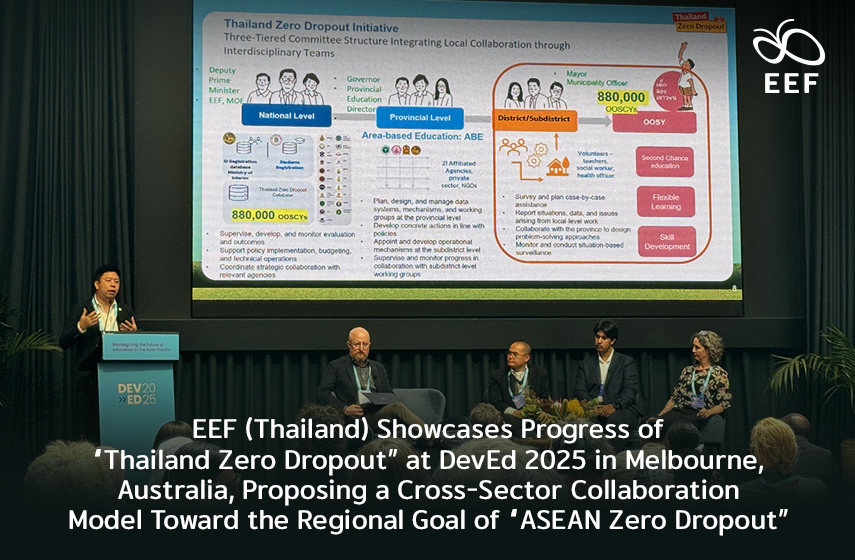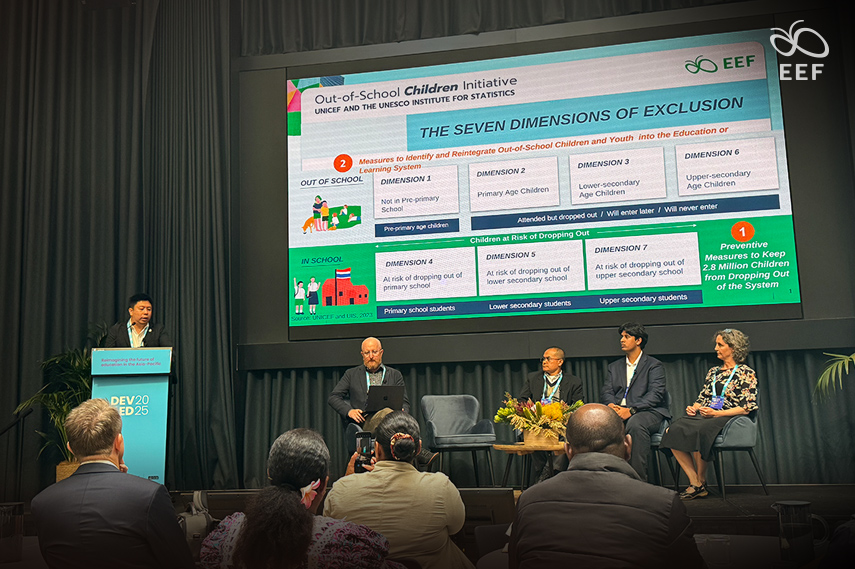
On November 11–13, 2025, the Equitable Education Fund (EEF) Thailand participated in the Development and Education Conference (DevEd 2025) held in Melbourne, Australia. The conference was organized by the Australian Council for Educational Research (ACER) with support from the Australian Department of Foreign Affairs and Trade (DFAT) and the Foreign, Commonwealth & Development Office (FCDO) of the United Kingdom. This reflects the shared commitment of the Australian and UK Governments to jointly advance education and development agendas in the Asia-Pacific region. The conference aimed to facilitate the exchange of knowledge, research, and effective practices to enhance learning quality and educational equity in the region.

Dr. Kraiyos Patrawart is the Managing Director at the EEF (Thailand) presented the progress of Thailand Zero Dropout, which builds upon the success of the Ratchaburi Model. This model originated from a partnership with Sansiri Public Company Limited, which issued a 100-million-THB bond to support the Zero Dropout initiative. This strategy played a critical role in elevating the initiative to the national policy level, leading to the systematic rollout of Thailand Zero Dropout.
EEF (Thailand) has collaborated with 21 relevant agencies—national and local—to develop reliable data system, monitor and assist out-of-school children and youth on case-by-case basis, design flexible learning pathways matched individual circumstances and engage private sector to equip young people with skills aligned with current labor-market needs.
After 2 years of implementation, EEF (Thailand) reports that approximately 200,000 children and youth have already been tracked and supported back into learning pathways, marking a significant step forward in addressing educational inequity in Thailand.

Dr. Kraiyos Patrawart emphasized that the success of Thailand Zero Dropout stems from:
- establishing a reliable, unified data system that forms the foundation for targeted interventions;
- developing flexible learning models so that no child is left behind; and
- building a shared regional direction toward ASEAN Zero Dropout, highlighting that cross-sector and cross-country collaboration among ASEAN Member States can drive a collective effort to reduce the number of out-of-school children across the ASEAN region in the future.

